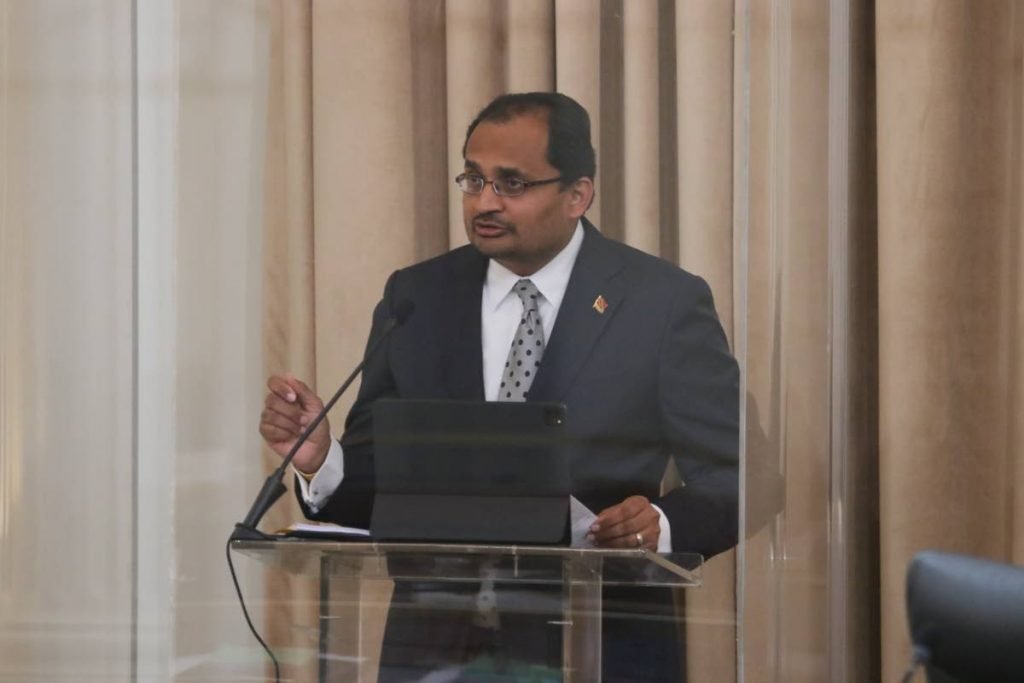Trafficking cries disdainfully ignored

DINESH RAMBALLY MP for Chaguanas West
IN JANUARY 2021 when the UNC debated its motion of no confidence in the Minister of National Security, the issue of human trafficking was high on the agenda. In the debate I myself referred to the reports of the Caribbean Investigative Journalism Network, Mark Bassant (5/12/2019), statements of the Director of Police Complaints Authority made in 2019, US State Department 2020 Trafficking in Persons Report and Caricom report entitled “T&T Officers Involved in Sex Trafficking.”
Once again, upon learning of the possible capsize of another boat (with similar incidents having occurred in April 2021 and December 2020) which left Trinidad and Tobago for Venezuela, resulting in missing and dead people, I immediately wrote (5/04/21) the Minister of National Security detailing some ugly aspects of the trafficking issues plaguing our country. I asked the minister:
“What proactive measures do you intend to employ to avoid these border-crossing drownings in the future? What do you intend to do to tackle the scourge of human and child trafficking?
With the information in hand about possible forest hideouts and illegal ports that are utilised by illegal immigrants, how are you treating with this issue?
What tangible assurances can you give at this time to our local fishermen that they can go out on the open seas with a confidence that they are enjoying the protection of the various arms of National Security?”
To date I, as the MP for Chaguanas West, am still awaiting an acknowledgement of this letter, let alone a response. So Prime Minister Rowley’s insinuation in the Parliament that we (particularly central Trinidad) should start dealing with the immigration problem by first tackling this scourge is a belated call, quite frankly. My own repeated pleas to tackle this problem have fallen on the deaf ears of this government.
Human trafficking is a human rights and criminal law violation. Notwithstanding its devastating manifestations, trafficking has been clichéd and even euphemised by the label, “modern-day slavery.” Some involve the domestic or international recruiting, transporting and harbouring of people for forced labour. Unscrupulous people pay to bring them into the country illegally and take unimaginable advantage of them.
We have heard many stories of young women being recruited for work, some of them in circumstances where they thought they were leaving behind an already hard life in an attempt to simply survive, and others in an attempt to make their dreams come true.
Human trafficking in its different forms quickly turned their dreams into a nightmare. Some women have their passports seized (thinking they are being recruited for bona fide jobs) and are subsequently forced to work gruelling hours as housekeepers and nannies, all the while being sexually exploited and having to endure the most heinous sexual torture as well. Others, who were kidnapped, imprisoned and shipped off, are treated like sex slaves in hell, enduring all manner of abuse.
Horror stories from a few people who were rescued and/or able to escape reveal that in their captivity they were only allowed to eat one insubstantial meal a day, forbidden to talk to anyone else, share unsanitary toilet facilities and were often times beaten to a pulp. The evil ordeal did not end there. Being virtually impossible to escape, the language barrier, fear of being thrown in jail because they are illegal, they don’t ever come forward because their trauma makes them very scared of the human traffickers who have exploited them sexually.
Presentations on the topic of trafficking detail pictures of girls beaten by their pimps, the tattoos they’re forced to get as brands, chilling recordings of pimps issuing threats, internet escort ads featuring women in lingerie. There are even images of women in collars and chains shown to appeal to different fetishes.
We should envy some of the work taking place in other jurisdictions. In Canada hotels and motels are at the front line in the fight against human trafficking. Connecticut has passed anti-trafficking laws by which hotel workers are trained to become more aware of potential trafficking signs, detect and report human trafficking when they suspect the illegal activity is going on where they work.
The training includes information for managers and people working in specific staff sections, such as in safety, housekeeping and reception. They also learn how to deter traffickers, report suspected crimes and help victims connect with support and security services. The law also requires operators of hotels, motels, inns and other lodgings to keep records of all guest transactions and receipts for at least six months.
On another note, I observed the Counter Trafficking Unit (CTU), Ministry of National Security, Valentine’s Day publication: “Treating the hidden wounds of human trafficking.”
What is astonishing is that instead of focusing on educating the public and focusing on victims, it choses instead to focus on the fact that staff of the CTU may exhibit secondary traumatic stress which they can experience in assisting victims.
I highly doubt this was deliberate on the CTU’s part, but it is certainly insensitive in the current environment and shows a disconnect to the victims of human trafficking.

Comments
"Trafficking cries disdainfully ignored"